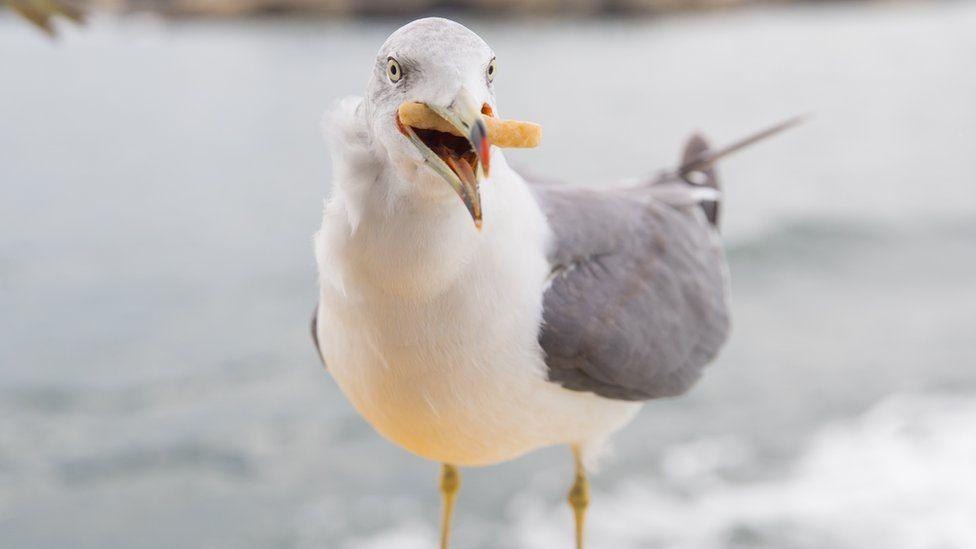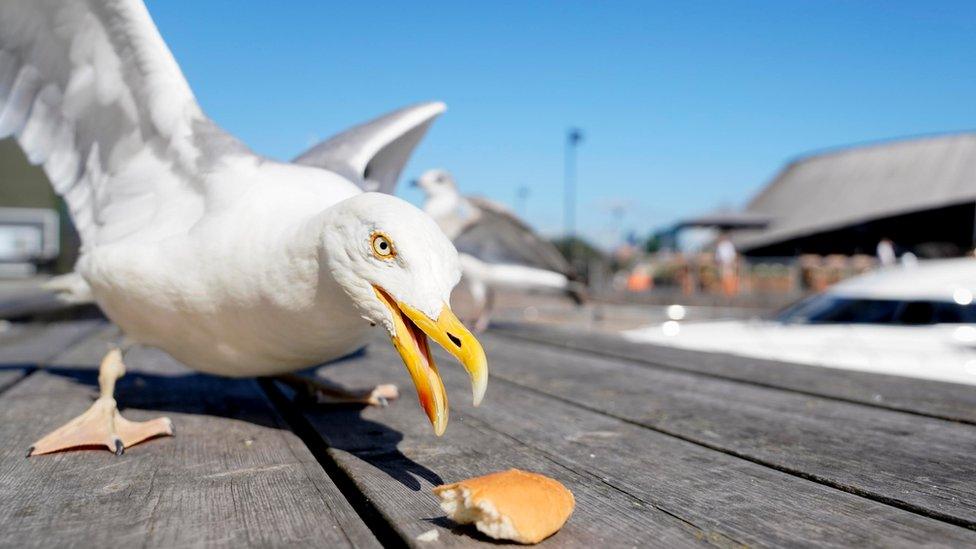Gloucester City Councillors fear gull bird flu outbreak
- Published

Council estimates suggest there were around 6,000 gulls in the city as of 2019
A sharp rise in the gull population could lead to a bird flu outbreak, council leaders fear.
Avian flu is an infectious influenza that spreads among birds and some strains of bird flu can pass to humans.
The UK Health Security Agency (UKHSA) said the risk to humans is very low and usually required very close contact with an infected bird.
But Gloucester City Council leader Richard Cook feared this could be a real possibility locally.
The Local Democracy Reporting Service said council estimates suggest there were about 6,000 gulls in the city as of 2019.
But changes introduced since then mean they have not been able to do any surveys.
Mr Cook said the gulls in his area are of a high risk because they share very "close proximity to humans" whilst "messing all over the place and snatching food" from people.
"We might have another pandemic in a few years time which has arisen in the resident gull population because we haven't been bothered to deal with it," he said.
"If it happens to be particularly virulent it may kill high numbers of human beings in a similar way that Covid did.
"It's a risk we do not need to take."
'Don't touch dead gulls'
Urban gulls expert Linda Gamlin said since mid-June, dozens of dead and dying herring gulls, which tested positive for bird flu, have turned up on beaches in East Anglia and Sussex.
"A few have been found in towns," she said.
"People who see dead gulls are being warned not to touch them, unless they're in full 'space suit' protective gear.
"But the thing about urban gulls is that they love close contact, especially if you've got a sandwich or chips."
Natural England said it recognised that local authorities may need to control large gulls where there is a specific risk to public health.
A Natural England spokesperson said: "To support this, those who are applying to control large gulls in urban areas must also submit integrated management plans to demonstrate a strategic and coordinated approach to non-lethal control."

Follow BBC West on Facebook, external, Twitter, external and Instagram, external. Send your story ideas to: bristol@bbc.co.uk , external
Related topics
- Published17 June 2022
